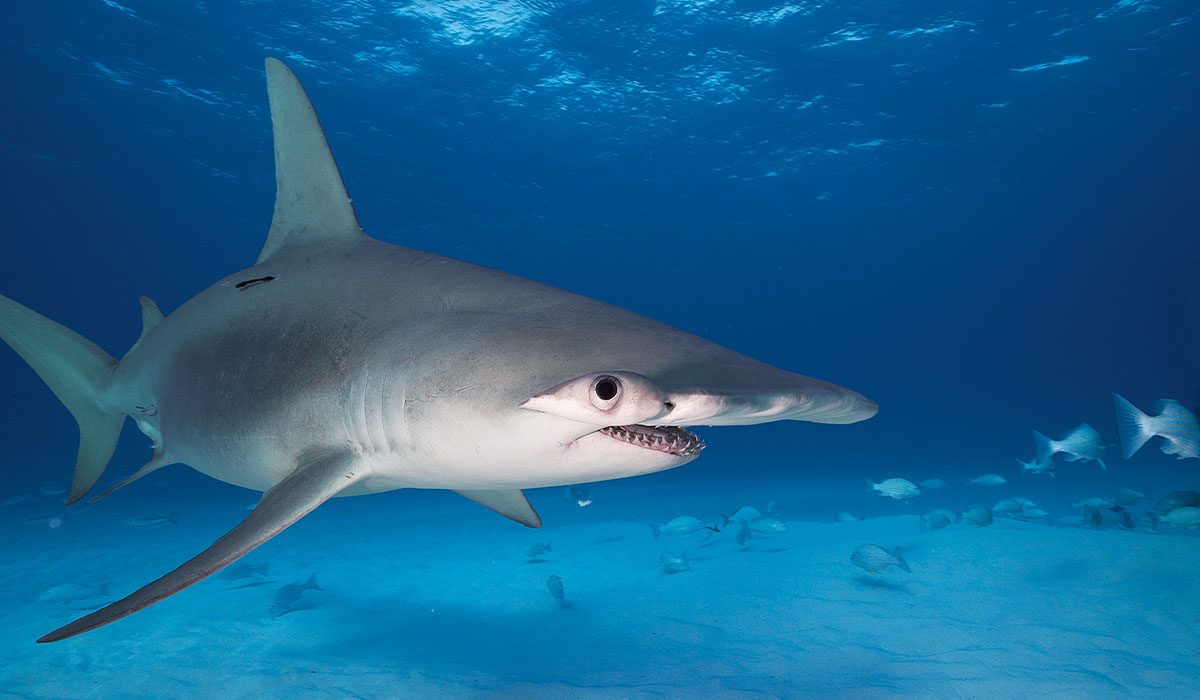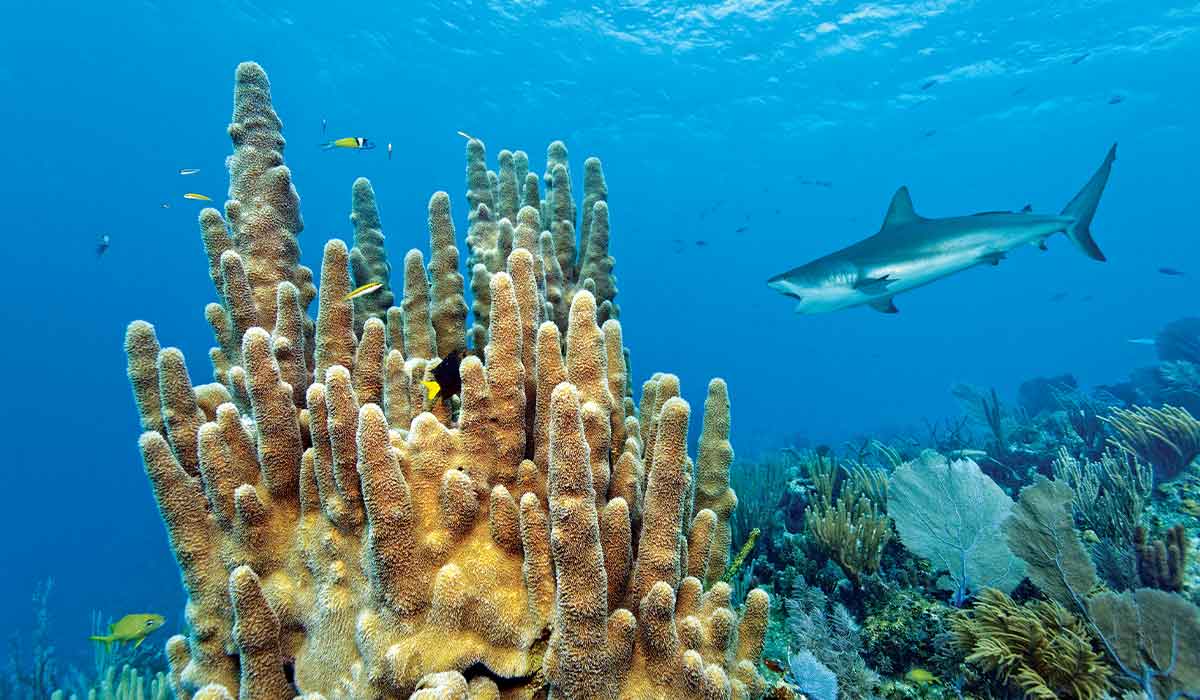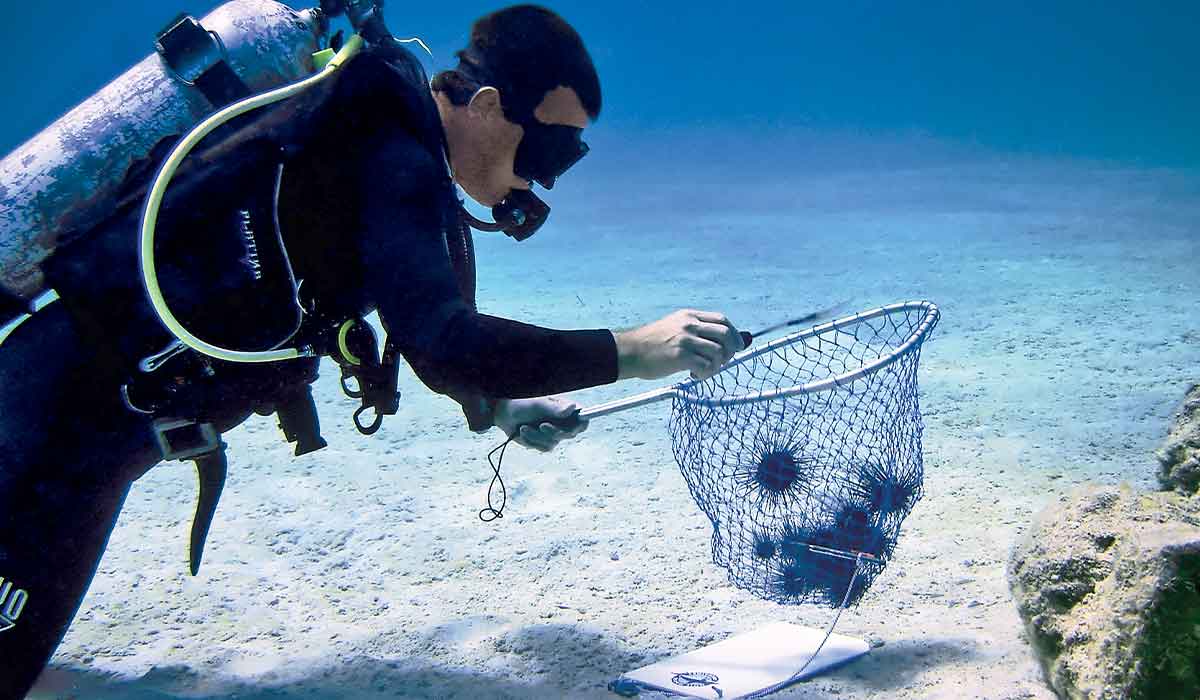On the Brink
Predatory fish in natural environments are a rarity, because of physical traits and population exploitation. Read more about about predatory fish populations that are on the brink.

Predatory fish in natural environments are a rarity, because of physical traits and population exploitation. Read more about about predatory fish populations that are on the brink.

Cuba is a hard-to-get-to dive destination from the United States. However, other divers from across the globe have been able to explore Cuba. Read more about diving in Cuba.

Diadema sea urchins once plagued coral reefs but in just 13 months, quickly died off. However, diadema are important for reefs. Read more.

Eutrophication is the excessive richness of nutrients in a body of water and can kill plant and animal life from a lack of oxygen. It can be caused either by Mother Nature or human involvement. Read more about eutrophication.

The ocean is actually quite a noisy place caused by the unique marine fauna. Read more about this marine symphony.

Global marine protected wildlife sanctuaries foster ecological protections and growth while also helping boost local economies. Read the stories behind several marine protected areas across the world.

Marine protected areas (MPAs) are vital in saving global coral reef populations — and yet, they aren’t completely enough. Read more about the importance of MPAs.

National marine sanctuaries protect natural and cultural features and enable people to use and enjoy the oceans in sustainable ways. Read more about these sanctuaries and how you can enjoy them.

Florida manatees are slowly rebounding, however, they have been urbanized and migrate to places often unsafe. Read more about Florida manatees.

Hydrothermal vents are underwater volcanoes that play an important role in the ocean’s temperature, chemistry and circulation patterns. Read more about hydrothermal vents and their importance to scientists.
